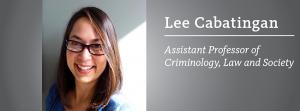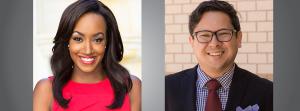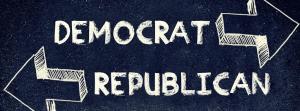The perils of false memories in political investigations
June 2017
Politicians and officials under investigations like the one probing the Trump campaign's Russia ties often say they cannot recall certain events. Investigators and prosecutors don't look kindly on such statements.
But high-profile public figures do sometimes develop incorrect memories, such as Brian Williams' on-air exaggerations, and Hillary Clinton's story of coming under sniper fire in Bosnia.
"Educated, successful people in society can have pretty huge false memories," Elizabeth Loftus, distinguished professor of psychology and social behavior, told Politico.
Two criminology students win Dickman award for community engagement
June 2017
Destiny Drake and Peter Hanink, both of whom are studying Criminology, Law and Society, have been selected for the Paul and Frances Baker Dickman Graduate Award for Community Engagement.
The award recognizes students who actively contribute to their community and while also pursuing their studies.
PhD student researches how to alter public perceptions of police
June 2017
Simple changes in police officers’ attire and equipment can have profound effects on whether others perceive them to be aggressive, approachable, friendly, respectful, and accountable. Rylan Simpson, a doctoral student in criminology, law and society, recently demonstrated such changes in perception during a panel discussion at the University of Redlands, an event that was featured in the San Bernardino Sun.
Simpson is currently studying the topic as part of his experiment, titled the Police Officer Perception Project.
Data mining leading to new type of immigration enforcement
June 2017
Police departments and federal agencies today have access to huge databases -- financial records, phone calls, vehicle records and criminal justice files -- that didn't exist two decades ago. And Immigration and Customs Enforcement agents are now mining those vast quantities of data to identify and locate undocumented immigrants to arrest. The data are aiding a rise in immigration raids under President Trump's administration.
"The raids are different than before, they’re very targeted," Ana Muniz, an assistant professor of Criminology, Law & Society, told The Intercept. "Any sort of motivated agent has a way to access information from one system to another. The arrests we’re seeing in Los Angeles are of ICE agents sent out to detain or one two people with specific standing removal orders, that requires a detailed level of intelligence, whereas during the 1990s and 2000s, the raids were more location-based."
Psychological problems, not partisan divide, lead to violence.
June 2017
Vitriolic partisan statements quickly appeared on the Internet after James T. Hodgkinson opened fire at Republican congressmen practicing baseball near the capitol. Many blamed the violence on politics. But Peter Ditto, professor of psychology and social behavior, says psychological problems are why people act violently.
Negative perceptions of rap threaten to bias jurors in criminal trials involving rappers
June 2017
Police suspected that Olutosin Oduwole, a student at Southern Illinois University, was plotting a campus mass shooting, and in 2007 arrived at his dorm room door to arrest him. In the trial, prosecutors used a set of violent rap lyrics as evidence against him.
But using such lyrics against defendants is fraught with peril, says Charis Kubrin, a professor of criminology, law and society. Kubrin conducted a study asking participants to evaluate a set of lyrics and determine how threatening and offensive they were. Even though all the participants read the same set of lyrics, those who were told the lyrics were rap consistently evaluated them more negatively.
The conclusion: the label "rap" carries baggage for people. And that baggage can bias jurors and judges during criminal trials involving rappers.
False memories led to guilt admissions in 1989 Nebraska murder
June 2017
In 1989, a Nebraska woman was murdered. Six people were accused; five took pleas and, over the course of suggestive interrogations, came to believe they were guilty. Two generated memories of the crime that embedded so deep they could be vividly recalled decades later.
But none of the six accused were responsible. It was the largest DNA exoneration involving false memory in U.S. judicial history.
The case demonstrates the malleability of memory. "Memory is born anew every day," Elizabeth Loftus, distinguished professor of social ecology, told The New Yorker.
Latino students thrive at UCI, which is named a Hispanic Serving Institution
June 2017
Angela Vera, the daughter of a Mexico-born carpenter with a second-grade education, was able to thrive at UC Irvine because of the financial aid, academic support and leadership opportunities at the university.
"I always thought UC was for students up here," Vera, who will complete a double major in criminology, law and society and social ecology next year, told the LA Times. "I never saw myself as capable."
Irvine is the most popular UC campus for Latino freshmen applicants, the campus was recently designated a Hispanic Serving Institution.
Journaling methods help improve mental and physical health
June 2017
A journaling method called "expressive writing" -- recording your deepest thoughts and feelings for 15 to 30 minutes a day, usually for period of days or weeks -- has numerous physical and psychological benefits, according to a meta-analysis of 146 studies on expressive writing conducted by Joanne Zinger, associate professor of teaching. The practice can improve mental health and even cause wounds to heal faster.
Zinger's work was featured in The Guardian.









